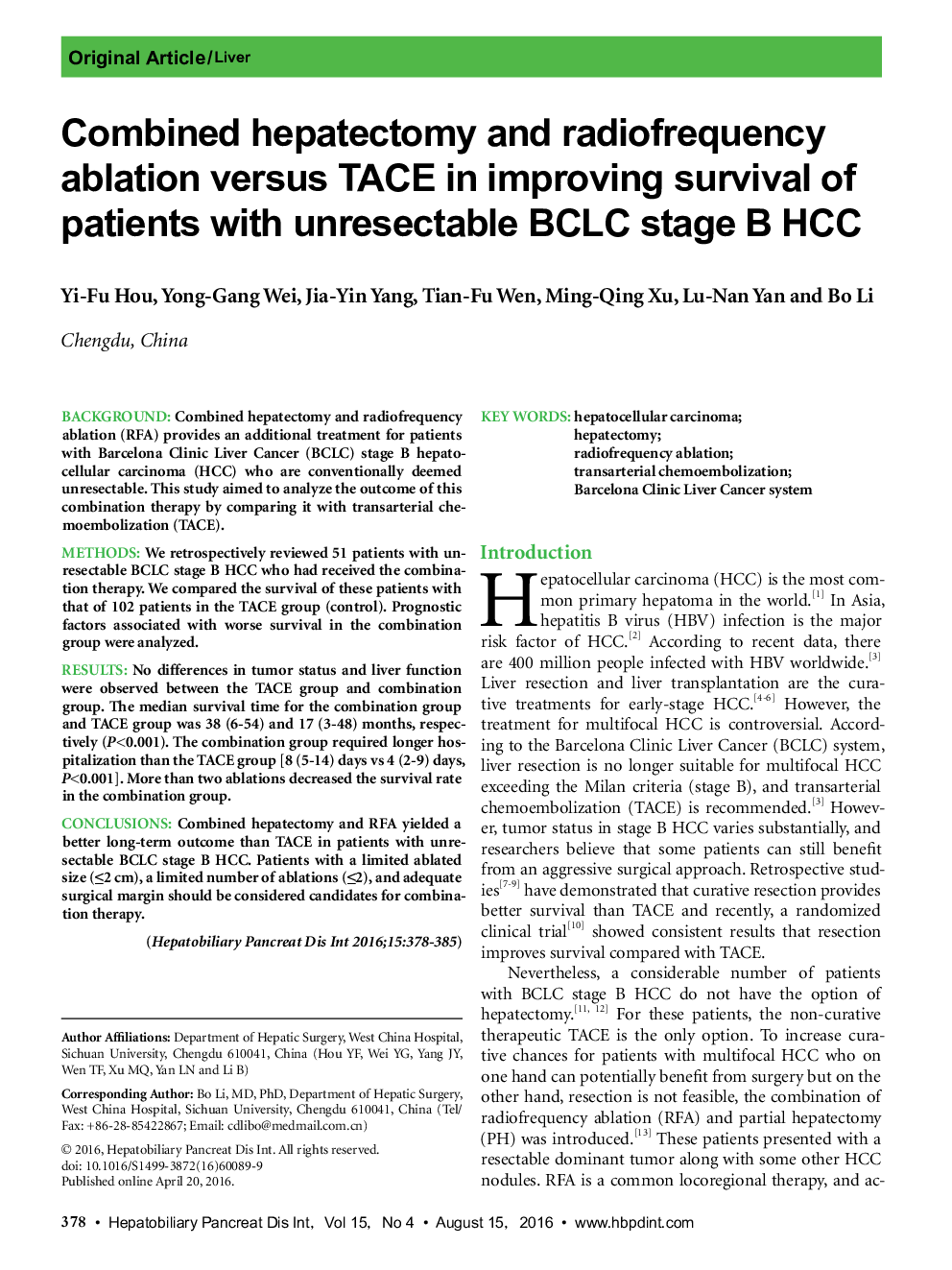| Article ID | Journal | Published Year | Pages | File Type |
|---|---|---|---|---|
| 3337110 | Hepatobiliary & Pancreatic Diseases International | 2016 | 8 Pages |
BackgroundCombined hepatectomy and radiofrequency ablation (RFA) provides an additional treatment for patients with Barcelona Clinic Liver Cancer (BCLC) stage B hepatocellular carcinoma (HCC) who are conventionally deemed unresectable. This study aimed to analyze the outcome of this combination therapy by comparing it with transarterial chemoembolization (TACE).MethodsWe retrospectively reviewed 51 patients with unresectable BCLC stage B HCC who had received the combination therapy. We compared the survival of these patients with that of 102 patients in the TACE group (control). Prognostic factors associated with worse survival in the combination group were analyzed.ResultsNo differences in tumor status and liver function were observed between the TACE group and combination group. The median survival time for the combination group and TACE group was 38 (6–54) and 17 (3–48) months, respectively (P>0.001). The combination group required longer hospitalization than the TACE group [8 (5–14) days vs 4 (2–9) days, P>0.001]. More than two ablations decreased the survival rate in the combination group.ConclusionsCombined hepatectomy and RFA yielded a better long-term outcome than TACE in patients with unresectable BCLC stage B HCC. Patients with a limited ablated size (≤2 cm), a limited number of ablations (≤2), and adequate surgical margin should be considered candidates for combination therapy.
